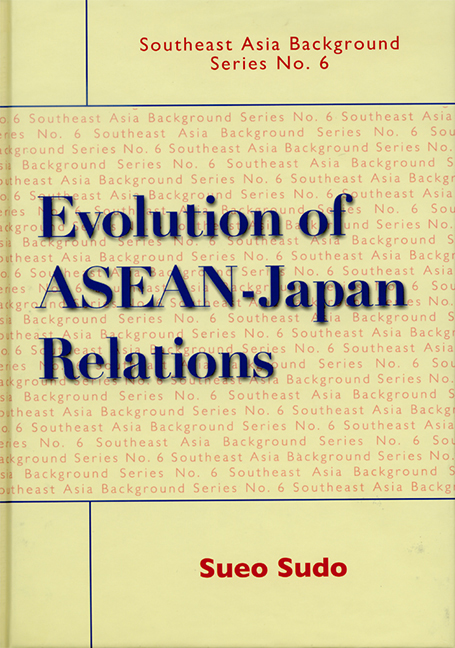2 - The Fukuda Doctrine Phase: 1977–86
Published online by Cambridge University Press: 21 October 2015
Summary
The election of a new prime minister on 23 December 1976 was the beginning of Japan's new Southeast Asian policy with its special emphasis on ASEAN. As a strong Liberal Democratic Party (LDP) leader, but one who also had personal relationships with many top ASEAN leaders, Prime Minister Takeo Fukuda was highly esteemed by government officials as well as by Southeast Asian leaders. ASEAN needed a strong push at the start of its second decade in 1977. Recognizing favourable signals from ASEAN leaders, Fukuda, upon establishing his Cabinet, expressed readiness to promote an Asia-centred diplomacy.
Unlike his predecessors, Prime Minister Fukuda came into office with clearly defined domestic and foreign policy objectives. His external policies could be epitomized by his support for three concepts: first, Japan's unprecedented experiment as a great economic power without military power; second, the interdependent world community and Japan's responsibility to it; and third, a sense of the world economic crisis and Japan's ability to contribute to world economic recovery and toward solving North–South problems. Of the three, the first had been a long-cherished policy objective since Fukuda's days as Foreign Minister.
To make these ideas official policy, Prime Minister Fukuda had to announce them at the right occasion and at the right place. Unlike previous premiers, Fukuda's foreign policy staff, mainly Hisashi Owada, Yosuke Nakae, Tokehiko Nishiyama, were eager to initiate a new diplomatic discourse. To these policymakers, Fukuda's involvement in Southeast Asia was substantial partly because his former factional leader, Nobusuke Kishi, had cultivated unofficial channels through Japan's war reparation payments. Having developed personal relationships with Southeast Asian leaders before becoming Prime Minister, Fukuda responded favourably to those leaders' high hopes for his premiership. Another aspect of Fukuda's overtures was cultural, as he was involved in setting up the Japan Foundation in 1972. Since then he had been advocating new cultural relations with Southeast Asia, emphasizing Japan's role as a non-military actor and the need to construct better relations based on mutual trust and a better understanding of each other's cultures.
- Type
- Chapter
- Information
- Evolution of ASEAN-Japan Relations , pp. 11 - 20Publisher: ISEAS–Yusof Ishak InstitutePrint publication year: 2005

